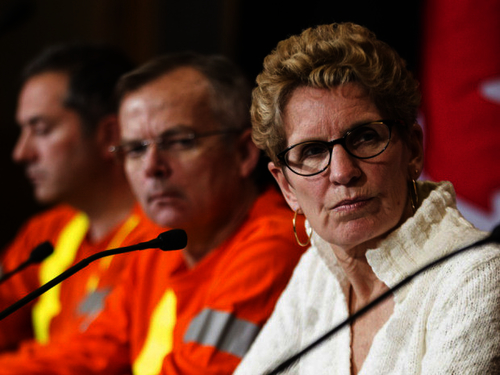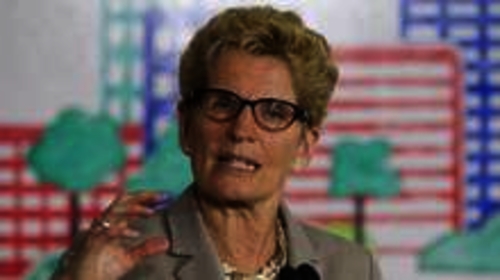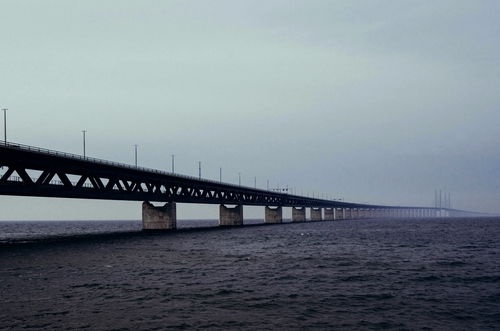In his opinion piece for the National Post yesterday, Work and Economics program director Brian Dijkema called for fair, open and competitive tendering in Ontario, particularly as $11 billion is scheduled to go toward its public infrastructure. Warnings have been sounded for years about this flawed approach to public expenditure—Cardus research suggests increases of 20 to 30 percent on billions of dollars of work—and little has been done about it. It appears we’re content to throw away hundreds of millions of extra dollars every year without anything to show it. The article is an introduction to the report published earlier this year by Cardus's Work and Economics program entitled "Tuning Up Ontario's Economic Engine," which studies the cost implications of closed tendering on the City of Toronto. Read the rest of this article at the National Post website.

Brian Dijkema in National Post: Why pay more for infrastructure?
June 13, 2015

How to break Ontario’s monopoly on education
On Wednesday, Premier Kathleen Wynne announced her intention to table back-to-work legislation to allow 70,000 students across Ontario to return to school. This follows a predictable pattern—teachers strike, parents and students suffer, and then the government intercedes without addressing the root issues. According to the Canadian Foundation for Labour Rights, Ontario is now the national leader in forcing striking workers back to work with legislation. Each time this happens students miss school, teachers miss work, and parents are left wondering what, exactly, their tax dollars buy them. Clearly something is wrong. Read the rest of Van Pelt's opinion piece at the Globe and Mail website.
May 26, 2015

Of Magazines and Communities
May 26, 2015

Michael Van Pelt: ‘Students are losing by not learning’
Cardus president Michael Van Pelt appeared on Hamilton's AM900 last night to discuss the article he wrote for The Globe and Mail yesterday: "How to break Ontario's monopoly on education." Van Pelt explains: Premier Wynne is about to do what collective bargaining agreements should never, ever have to do; she's interfering with a robust collective bargaining agreement and using her power to essentially break the contract. No one in the labour movement can support that kind of thing. ... Create competitive environments where you can have robust collective bargaining without the power differentials of near-monopolies like we have here—this would be a win/win for everybody. Learn more about the Cardus Education program's recent report on Onatrio's education system: "Toward a Warmer Climate for Ontario's Private Schools."
May 26, 2015

Helping people make connections
The Federation of Canadian Municipalities will no doubt attract significant media interest at its upcoming annual conference with calls for great physical infrastructure spending. Indeed, even before it kicks off its gathering in Edmonton from June 5 to 8, the FCM has already won well-deserved attention for a report showing Canada is $123 billion behind on physical infrastructure, and lagging by a further $2 billion annually. New federal investments of $75 billion over 10 years for Canadian infrastructure will help, but even that can't catch us up completely. The FCM is right to raise concern about this chronic infrastructure shortfall, which generally captures our awareness only if a large chunk of a local bridge plunges into a river or a broken water main snarls commuter traffic. We need these things so that we can live the lives we do, yet we forget and neglect them until trouble reminds us they're essential. Yet there is another kind of essential infrastructure that all too often has even lower visibility: social infrastructure. Read the rest of Friesen's article at the Regina Leader-Post website.
May 25, 2015

Michael Van Pelt on <i>Cross Country Checkup</i>: Mediating institutions are essential
On Sunday's Cross Country Checkup, Cardus president Michael Van Pelt discussed the character of the social safety net and how stronger social architecture can improve Canada (from 1:16:29). I think the central question around the future challenge to our "safety net" as we call it is actually a structural challenge about how society is organized. Cardus, for the last ten years, has talked about renewing Canada's social architecture. And the root to that question really is our impulse over the last number of decades to default to fewer and fewer institutions to solve our problems. So on the one hand, if you're on the left, and you have a problem, who do you call? You call the state to solve your problem. On the other hand, if you're on the far right, you just leave it up to the individual or the market and just let it take care of itself. In the middle, what you have then, is many of these institutions—you may call them mediating institutions or civil society institutions—that are no longer as vibrant as they either historically were, or what they need to be to meet the needs of a flourishing society. The program also featured Sunil Johal of Renewing Canada's Social Architecture, a collaborative project involving researchers from the Mowat Centre, the Caledon Institute of Social Policy, the Institute for Competitiveness and Prosperity and the Institute for Research on Public Policy. You can listen to the entire program at the CBC website.
May 17, 2015

Wheels, Walking and the Absence of Wings
Normal preparation for a distant conference or work commitment includes booking your flights. But what if you didn’t do that: What if, instead of booking a flight, you booked a berth on a train. What would happen? I decided to find out. My rule was that travel to the Congress for the New Urbanism 23 conference in Dallas, Texas from my home in Hamilton, Ontario would involve only wheels and walking, no wings. That meant a cab from my house to the GO station, walking from the GO to the Megabus station, bus to Buffalo train station, then train to dowtown Dallas and a walk to my hotel. One of the themes that you’ll find in new urbanism circles is the idea of path as place. That means that sidewalks, roads, streets, and other means of getting around are not only lines that connect where we really need to be, they are themselves places where we socialize, shop, read, watch, listen, and live out our lives. My experiment was driven by a desire to learn: what kind of place is the Amtrak pathway? It is a very different pathway than an airplane. Every mode of travel is peculiar in the space that it creates and the way that feel in that space. I am not offering an apologetic for the superiority of train travel over flying. Or bicycling. Or being shot out of a cannon. Each has its charms and irritations. Read more at seekingcommunity.ca.
May 13, 2015

Milton Friesen talks about transit for Tamarack’s Seeking Community blog
Our director of Social Cities, Milton Friesen, decided last month that his trip to the Congress for the New Urbanism 23 conference in Dallas, Texas, from his home in Hamilton, Ontario, would involve only wheels and walking, no wings. One of the themes that you’ll find in new urbanism circles is the idea of path as place. That means that sidewalks, roads, streets, and other means of getting around are not only lines that connect where we really need to be, they are themselves places where we socialize, shop, read, watch, listen, and live out our lives. My experiment was driven by a desire to learn: what kind of place is the Amtrak pathway? In his blog entry for the Tamarack Institute's Seeking Community blog, Milton discusses some of the differences between flying and keeping one's feet on the ground.
May 13, 2015

Peter Stockland on <i>Cross Country Checkup</i>: ‘You don’t tell Albertans what to do’
Peter Stockland chatted with Rex Murphy about Alberta politics from "behind the croissant curtain" in Montreal on Sunday. The fumes that I could smell wafting across the Great Lakes and the Canadian shield from my beloved Alberta were the fumes of entitlement ... that you know, "You're gonna vote for us because you've always voted for us before." One thing I do know about Albertans from having lived there three times is you don't tell Albertans what to do, and you don't tell them that they owe you something. On the new premier's family legacy, which he also wrote about for the Cardus Daily: You can see it in Rachel Notley: There obviously a physical resemblance, but there's a resemblance of comportment as well, in that sort of fundamental ... sense of empathy, but it's also a deep sense of decency. It truly has passed on. And on whether Notley's victory came as a surprise: People think of Alberta as ... this right-wing bastien of all things republican and all the rest of it. It's not true. Alberta's much, much more of a communatarian province than most people realize ... its roots are deep in that ethos of doing for others so that they can do for you when the time comes. Listen to this interview on Cross Country Checkup at the CBC website (from 0:24:58).
May 10, 2015
Media Contact
Daniel Proussalidis
Director of Communications
